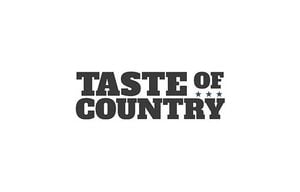UK pharmaceutical giant GlaxoSmithKline (GSK) recently made headlines with its announcement to pay up to $2.2 billion to resolve thousands of lawsuits linked to its discontinued heartburn medication, Zantac. This settlement, which is significant—covering around 80,000 claims—addresses allegations from users who assert the drug caused cancer.
GSK's decision follows extensive legal battles, indicating its commitment to resolving litigations associated with the drug, which has been under scrutiny since 2019. It reached agreements with 10 law firms on behalf of approximately 93% of the claimants, solidifying its strategy to eliminate future litigation risks concerning Zantac.
Even though GSK is parting with a considerable sum, the company adamantly states it has not admitted any wrongdoing. Company representatives mentioned the settlements would help reduce financial uncertainty and distractions caused by prolonged court cases, allowing them to focus more on their core business operations and research.
Zantac was first introduced to the American market back in 1983. It quickly climbed to popularity, becoming one of the best-selling drugs with annual sales exceeding $1 billion. Despite its success, issues arose concerning its safety. By 2020, regulators withdrew it from the market upon discovering its main ingredient, ranitidine, could convert to NDMA (N-nitrosodimethylamine), which is known to be cancer-causing when exposed to heat.
The controversy surrounding Zantac has stirred up many lawsuits against GSK and other pharmaceutical companies, including Pfizer, Sanofi, and Boehringer. Both Pfizer and Sanofi have reached settlements to resolve various claims linked to Zantac. Reports indicate Sanofi's settlement amounted to $100 million to handle around 4,000 cases, with each plaintiff receiving approximately $25,000. GSK's settlement brings the average compensation per claimant to about $27,500.
Alongside the litigation settlements, GSK has also committed to paying $70 million to settle complaints made by laboratory Valisure. Founded on compelling evidence, Valisure sounded the alarm back in 2019 about the cancer risks posed by Zantac. Their test samples reportedly found low levels of NDMA, prompting actions from the FDA and leading to the eventual discontinuation of the drug.
The case took significant turns as individual trials began. Early verdicts from courts have largely sided with the manufacturers, leading to reluctance among some plaintiffs to continue pursuing litigation. Notably, GSK had earlier gained ground when the Delaware Supreme Court sided with them on allowing expert testimony to proceed, which is speculated to bolster their stability against future claims.
While the fate and public perception surrounding Zantac remain complicated due to these claims, many believe the settlements represent GSK's proactive measure. Legal experts say they might help prevent the situation from spiraling out of control, especially with impending legal hurdles on the horizon from other plaintiffs.
Despite the substantial settlement figure, GSK reassured investors the costs would be managed through existing resources, indicating it does not plan to alter its growth strategies or hinder its investment plans for research and development. They maintain their commitment to innovate and launch new pharmaceuticals, even as they navigate the aftermath of past product liabilities.
The settlement discussions and resulting agreements are only part of the larger picture concerning pharmaceutical accountability. It raises pertinent questions about the prior monitoring and regulatory practices surrounding drug safety, particularly concerning commonly used medications, and could lay the groundwork for future reform.
Meanwhile, as Zantac’s legacy dissolves amid legal wrangling, the market has seen new formulations like Zantac 360 emerge, containing different active ingredients, which, according to the manufacturers, pose no risk of cancer. The story of Zantac is not just personal for those who took it; it reflects broader issues within the pharmaceutical industry, including corporate responsibility, regulatory diligence, and the ethics surrounding drug approvals.



